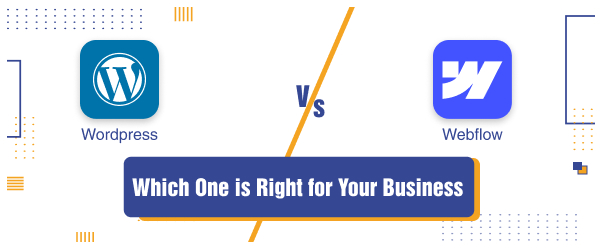Among the many avenues available, e-commerce websites emerge as indispensable tools for businesses aiming to expand their reach and bolster sales. Nevertheless, not all ecommerce platforms are created equal.
To truly stand out in the crowded online marketplace, businesses must invest in developing a website that not only looks great but also offers a seamless user experience. In this blog post, we’ll delve into the key features of E-commerce Website Development and strategies for crafting the ultimate e-commerce website.
User-Friendly Design
First impressions matter, especially in the world of E-commerce Website Development. A visually appealing and intuitive design is crucial for engaging users and keeping them on your website. Clean layouts, easy navigation, and visually appealing product displays are fundamental aspects of a user-friendly design. Additionally, optimizing your website for mobile devices is non-negotiable in today’s mobile-first world.
Smooth Checkout Process
One of the biggest hurdles in e-commerce is cart abandonment. Streamlining the checkout process by minimizing the number of steps required, offering guest checkout options, and providing multiple payment methods can significantly reduce cart abandonment rates and boost conversion rates.
Robust Security Features
Security is paramount in e-commerce, where sensitive personal and financial information is exchanged. Implementing robust security features such as SSL encryption, secure payment gateways, and PCI compliance not only protects your customers’ data but also builds trust and credibility for your brand.
Search Engine Optimization (SEO) Integration
Having a stunning website is only worthwhile if people can find it. Integrating SEO best practices into your e-commerce website ensures that it ranks higher in search engine results, driving organic traffic and increasing visibility. Optimizing product descriptions, meta tags, and image alt text, as well as regularly updating content, are essential for improving search engine rankings.
Personalization and Recommendation Engine
Personalization emerges as a pivotal factor in augmenting the shopping experience and bolstering sales. Incorporating features like personalized product recommendations, tailored promotions, and targeted email campaigns predicated on user behavior and preferences can significantly enhance customer engagement and loyalty.
Seamless Integration with Third-Party Tools
To maximize the functionality of your e-commerce website, seamless integration with third-party tools and services is essential. Whether it’s integrating with inventory management systems, CRM software, email marketing platforms, or social media channels, leveraging the power of integration can streamline operations and enhance the overall customer experience.
Analytics and Reporting
Data-driven decision-making is vital for the success of any e-commerce business. Implementing robust analytics and reporting tools allows you to track key metrics such as website traffic, conversion rates, customer behavior, and sales performance. By gaining valuable insights into user trends and patterns, you can make informed decisions to optimize your website and marketing strategies for maximum impact.
Scalability and Flexibility
As your business grows, so should your e-commerce website. Building a scalable and flexible website architecture allows you to easily accommodate growth and adapt to changing business needs. Whether it’s expanding product offerings, adding new features, or accommodating increased traffic, scalability ensures that your website can handle whatever the future holds.
Seamless Customer Support
Providing stellar customer support stands as a linchpin for fostering trust and loyalty with patrons. Offering an array of channels for customer communication, such as live chat, email, and telephonic support, ensures that customers can readily reach out with queries or concerns. Additionally, implementing self-service options like FAQs and knowledge bases empowers customers to resolve common queries independently.
Continuous Optimization and Testing
Crafting the ultimate e-commerce platform constitutes an iterative process necessitating continuous optimization and testing. A/B testing various elements such as website design, product placement, pricing strategies, and promotional offers allows businesses to discern what resonates best with their audience and effectuate data-driven enhancements over time.
Bottom Line
Crafting an exceptional e-commerce website platform necessitates advanced planning, strategic execution, and an unwavering commitment to delivering an unparalleled user experience. By incorporating the important features and strategies delineated in this discourse, businesses can forge a potent online platform that not only propels sales but also nurtures enduring customer relationships, propelling business growth in the real of E-commerce Website Development.






